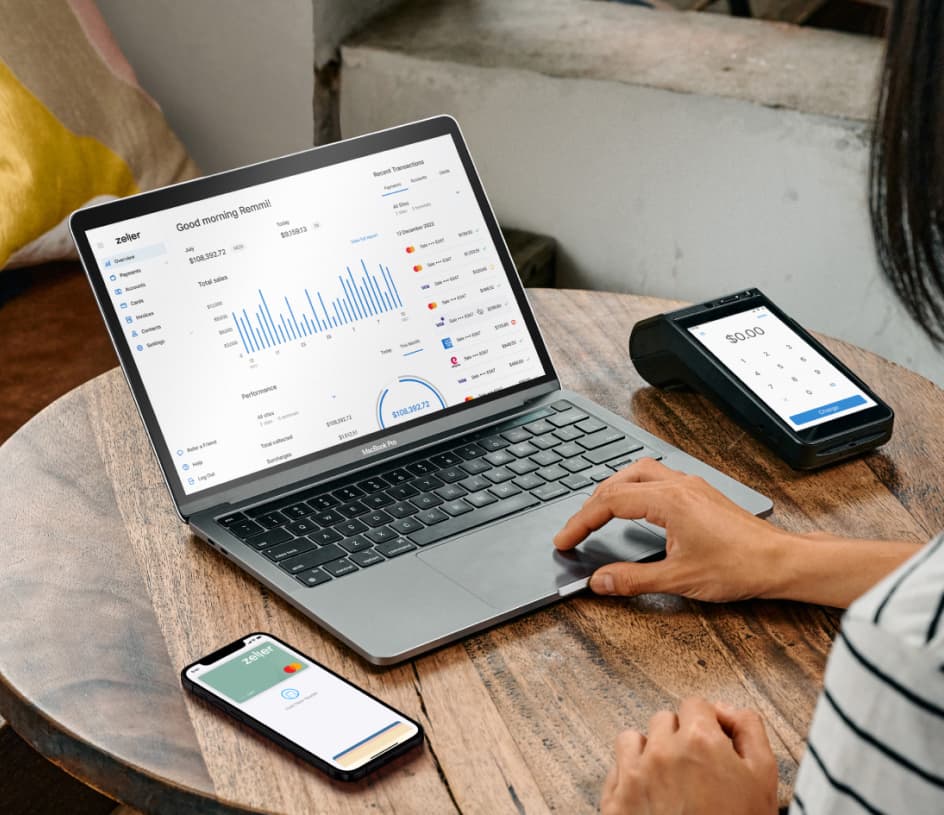
- Business Growth & Optimisation
Starting a New Business in 2025? Here Are Some Tips to Help You Succeed.
New year’s resolution: finally start that business you’ve been dreaming about.
It’s an exciting moment when you decide to finally take the leap, and the beginning of the new year is a classic time for aspiring entrepreneurs, but how to start up a business?
With technology advancing rapidly and markets evolving, it's essential to lay the right foundation to set yourself up for success. Here are some practical steps to starting a business and setting it up for success.
1. Research your market deeply.
Thoroughly understanding your customers and competition is arguably the most important piece of the business puzzle. Take the time to conduct robust market research to identify demand, pricing trends and gaps in the market that your business can fill. Engage with your target audience early to gather feedback and refine your offerings. Once you’ve done that, the next step is to create a solid business plan.
Top tip: Don’t rely solely on the feedback of friends and family. While their encouragement can be crucial during the early stages of your business, it’s important to also get the opinion of people who are truly impartial.

2. Leverage the latest technology.
You might be thinking, ‘Well, of course a tech company would say that!’, but it’s true. In 2025, staying competitive means embracing solutions that allow you to maximise output and efficiency. From cloud-based finance software (like a Zeller Account) to cutting-edge AI-powered solutions to e-commerce platforms to next-generation payment solutions (like Zeller Terminal), in 2025 you have access to more business tech than ever before.
Whether you're automating tasks, improving customer experience, utilising real-time analytics – and the list goes on – the right technology will save your business time and money as you grow.
Top tip: Start small using tools that align with your needs. You can always scale your tech stack as your business grows.
3. Build a strong, consistent online presence.
What’s the first thing you do when you hear about a new restaurant? You Google it, check the reviews, skim the website and make a judgement, all in a few seconds.
That’s the same approach many potential customers will take when deciding whether they’re interested in what your business is offering, so you want to make sure your first impression is a good one.
There’s a lot more to having a solid online presence than just a good website. From your Google search ranking to Google reviews, wording and design consistency across the various social media platforms and ensuring your business is listed accurately on directories like Google My Business and other industry-specific platforms, every detail plays a role in building trust and visibility online.
Building an engaged community on social media can definitely take time, but many businesses find it’s one of their best opportunities to drive revenue – well worth the effort. We’ve written about this previously with a focus on Instagram, but these tips are broadly applicable to all social media platforms. Check them out.
Top tip: Provide clear, up-to-date information about your hours, location, and contact details, and consider investing in SEO and content marketing to help customers find your business organically.
4. Plan your finances wisely.
As the saying goes, proper preparation prevents poor performance, and nowhere is this truer than when planning the financial side of a new business. Creating a detailed budget that outlines startup costs, ongoing expenses, and revenue projections is paramount. Ensure your business is set up with a financial solution (like Zeller) that combines all of the necessary things you need – like transaction accounts, cards, expense management, invoicing and ways to accept payment – in one convenient place.
Top tip: Our Zeller Transaction Account offers far more functionality than a traditional business bank. It’s completely free to open, integrates seamlessly with Xero and you can add unlimited debit cards to your account – plus much more. The best bit? There’s no bank visit, and it only takes a few minutes to open.

5. Find a mentor.
Like in almost every other aspect of life, success in starting and growing a business hinges on two seemingly contradictory things – consistency and the ability to adapt to change.
You’ve probably heard the phrase “fail fast,” but changing your approach too frequently isn’t ideal either. When you hit a bump in the road, how do you know if you should stay the course or switch gears? You ask someone who has been there before.
A good mentor offers guidance, shares valuable insights, and helps you see challenges from a fresh perspective. Their experience can be a compass when navigating unchartered territory, giving you the confidence to make informed decisions.
Top tip: While your mentor doesn’t necessarily have to be from the same industry as you, you should seek out someone who has been successful in starting and growing their own business. Learning from their firsthand experience can help you overcome challenges, seize opportunities and navigate the myriad complexities of entrepreneurship.
Starting a business this new year? Contact the Zeller Sales Team today on 1800 935 537 to discover how our industry-leading financial solutions can help your business thrive in 2025 and beyond.



